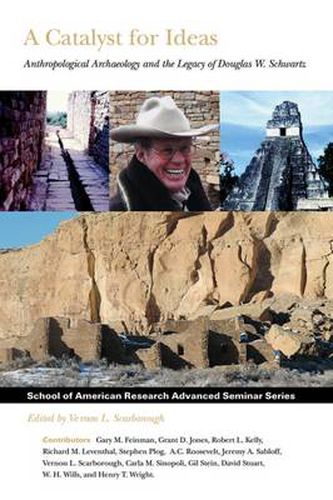Readings Newsletter
Become a Readings Member to make your shopping experience even easier.
Sign in or sign up for free!
You’re not far away from qualifying for FREE standard shipping within Australia
You’ve qualified for FREE standard shipping within Australia
The cart is loading…






In his thirty-four years as president of the School of American Research, Douglas W. Schwartz’s far-reaching vision placed SAR on the intellectual edge of research about humans across the globe. Nowhere is this more evident than in his influence on the field of anthropological archaeology. The twelve essays in this volume celebrate his contributions by looking back at changes in the field and forward to vital questions, methods, and theories yet nascent. Ranging geographically from the North American Southwest-where Schwartz himself conducted extensive research-to Mesopotamia, central America, and the Indian subcontinent and chronologically from early hominid evolution through archaic hunter-gatherers to the classic and historical Maya, the distinguished contributors make the case for Schwartz’s enduring legacy. Addressing major issues in relations of power, writing systems, and directions for future research, this volume is at once mature in its depth and exciting in its boldness.
$9.00 standard shipping within Australia
FREE standard shipping within Australia for orders over $100.00
Express & International shipping calculated at checkout
In his thirty-four years as president of the School of American Research, Douglas W. Schwartz’s far-reaching vision placed SAR on the intellectual edge of research about humans across the globe. Nowhere is this more evident than in his influence on the field of anthropological archaeology. The twelve essays in this volume celebrate his contributions by looking back at changes in the field and forward to vital questions, methods, and theories yet nascent. Ranging geographically from the North American Southwest-where Schwartz himself conducted extensive research-to Mesopotamia, central America, and the Indian subcontinent and chronologically from early hominid evolution through archaic hunter-gatherers to the classic and historical Maya, the distinguished contributors make the case for Schwartz’s enduring legacy. Addressing major issues in relations of power, writing systems, and directions for future research, this volume is at once mature in its depth and exciting in its boldness.